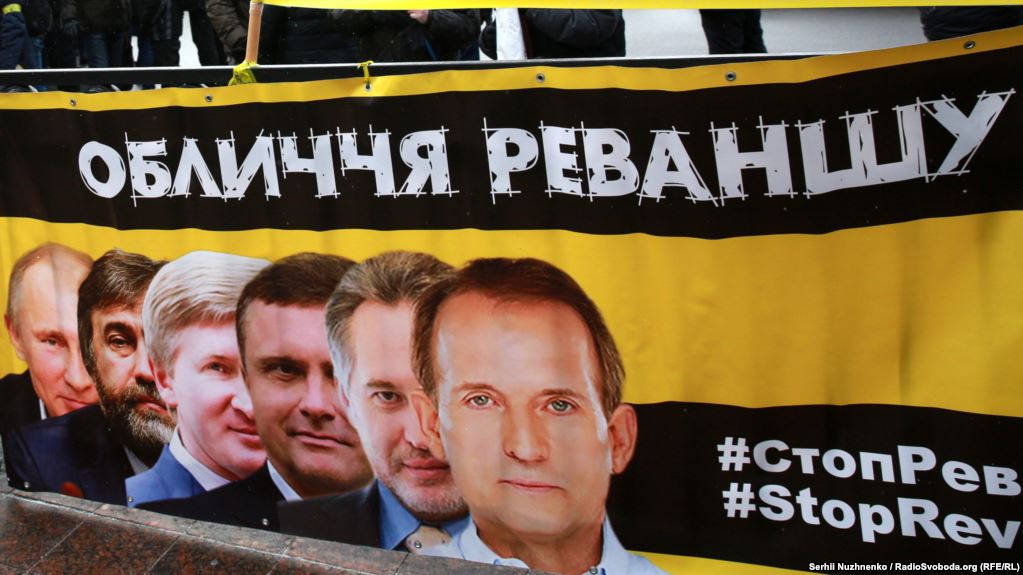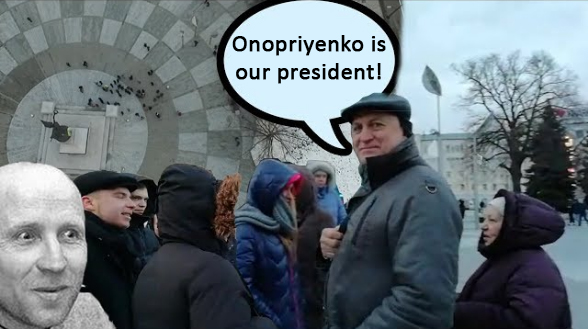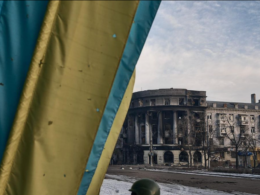One such solution is to provide parties an alternative to oligarch financing.
In July 2016, legislation on prevention and countering political corruption was amended in a way that foresaw providing state financing for statutory party activity and expenditure on pre-election campaigns. The changes came into force at the beginning of 2017. In addition, the necessary quarterly reports on the property, expenditure and financial obligations to the National Agency on Corruption Prevention (NACP) were introduced in 2016.
This was one of the laws included in the so-called visa-free package, the set of legislative provisions Ukraine had to adopt to pave the way for the liberalization of visa formalities with the EU.
The legislation foresaw that state funds would be provided for parties entering parliament and those gaining more than 2% of votes in the elections. The novation for the latter should have gone into force after the 2019 elections for parliament. According to the results, along with the five parties which reached the 5% threshold to be represented in parliament, another six parties should have received state money. Among these are the Radical Party of Oleg Liashko, Strength and Honor (Syla i Chest) of Ihor Smeshko, Ukrainian Strategy of Volodymyr Groysman, Opposition Bloc, Freedom (Svoboda), and the Party of Anatoliy Shariy.
However, the new parliament canceled the provision. On 2 October, MPs voted for the draft law #1029 which deprives parties gaining less than 5% from state funds.
Another provision of the new law foresees that state funding for parties will be reduced from 2% to 1% of the minimum salary multiplied by the number of voters taking part in multi-mandate constituencies during the last parliamentary elections.
Andriy Myseliuk, head of the Institute of the socio-political forecasting Dialogue, explains this as an attempt by the team of the new president Volodymyr Zelenskyy to optimize costs.
“The decision is right and justified, the winner receives everything. If a party gets 5%, it should receive financing. If not it is unjustifiable to pay for them just for getting through the campaign well, especially in today’s complicated times.”
Another potentially good aspect of the decision is that the parties which promote pro-Russian messages would not receive the state funding. In particular, the party of the controversial blogger Anatoliy Shariy and the Opposition Bloc, one of the successors of the Party of Regions of the runaway president Viktor Yanukovych. However, not all experts agree with this approach.
Before the new legislation was voted on, Victor Taran, head of Eidos Center, justified the necessity to fund parties which did not get into parliament.
“Reducing the financial barrier from 5% to 2% is a European norm which allows equal opportunities for both parliamentary and non-parliamentary parties. As a result it promotes party competition in the country. Especially for those which do not have access to budget funds.”
According to Taran, it would allow non-parliamentary parties to strengthen their structures and competitiveness in the next local and parliamentary elections.
The expert did not consider the pro-Russian stance of parties as an obstacle for state funding. He said that if voters did not like the activities of some parties, they could complain to the ministry of justice, security services, ministry of internal affairs or the NACP.
The money and the campaigns
While the introduction of the law has demonstrated positive results, it has not eliminated significant oligarchic influence on the parties.
According to Eidos data, in 2018 the main elements where the parties spent money in 2018 were publicity, maintenance of centers, salaries for employees, office rent, and material costs.
Spending money on media advertising is a disputable question.
“The prevalence of political advertising does not support building political parties. The aim of state funding is to make political parties strong and free of the main oligarchic groups, not promoting their advertising campaigns,” Oleksiy Koshel, the Head of the Committee of Voters of Ukraine NGO, said.
The expert does not support the idea of canceling state funding for parties. However, he considers it reasonable not to fund expenditure on advertising.
Using state funds for electoral campaigns is forbidden. A party becomes a subject of the election process after registering in the Central Election Commission.
For the electoral campaigns, political forces use their own party funds. However, those overcoming the 5% threshold will have the money spent on the campaign refunded out of the state budget. The maximum amount of possible refunding is equal to the maximum amount of the election fund, which is UAH 375,570,000 ($15,200,000). In total, for the previous elections, the state would have to refund more than UAH 467m ($18.6m). The cabinet of ministers should provide this money in the state budget for the next year.
However, it is not always clear who Ukrainian taxpayers would refund the money to.
Party funds are often provided by private sponsors who support the party. There is a widespread practice of involving fake donors such as unemployed people, cashiers or other people on a low income, leaving the real origin of the money unclear.
The majority of the parties did not reveal the real origins of their funds.
Another widespread practice of Ukraine’s pre-election campaigns is black cash.
According to NACP data, parties spent between UAH 1.1m ($ 44,580, the Opposition Platform for Life) to 6.4m ($259,379, Servant of the People) during the 2019 parliamentary campaign every day. Mostly, the money was spent on media advertising, billboards, and printed materials. However, journalists estimate that these amounts were just a minor part of all expenditure.
The black cash is used for black PR campaigns, security, bots, and salaries for people who officially were considered as party volunteers. Journalists revealed that one of the most important expenditure items for the parties was paying the observers from the parties and candidates. In particular, parties and candidates with low ratings used their quotas to have some observers and members of the district and precinct election commissions. These people acted in favor of their competitors with higher ratings for money.
Other “people’s” expenditure was related to paying volunteers who, for example, distribute party ads.
All of this is yet more proof that dependence of Ukrainian parties on oligarchic money is still considerable, which makes it extremely difficult for independent political forces to enter the political arena while depriving parties with lower ratings from state funding reduces the chances of change.
“With this bill [on depriving parties which gained more than 2%, but less than 5% from the state money] we in fact destroyed the mechanism of bringing parties out of the oligarchs’ control. Because we reduced the parliamentary funding for parliamentary parties and took away state funding from non parliamentary. We did not improve or specify it, but took away. From a populist point of view that’s perfect, we took away finance from parties. Practically, it kept parties in the ownership of Igor Kolomoiskyi, Rinat Akhmetov, Dmitro Firtash (read Putin), Viktor Pinchuk and others. That is, we will not continue to have parties, only election projects, mostly,” Yaroslav Yurchyshyn, an MP from the Voice (Holos) party, said.
Among the positive results of introducing state funding for parties, the experts named the legalization of work performed by political parties. As before, they often noted in their reports that they had a minimal number of employees, if any at all. Now legal salaries for the employees became more common. Also, public reporting on party financing became commonplace. All of this has not eliminated the oligarchs’ influence but made the financial aspects of party activities more transparent.
Read also:
- The rebellion: Servant of the People MPs unexpectedly reject President’s law, but for how long?
- Zelenskyy’s MPs set new records in violating parliamentary rules
- Ukraine’s new Parliament violates regulations in its strong will to serve the people
- Portnikov: The oligarchs are “educating” the Ukrainians
- Oligarch interests in the new Ukrainian parliament
- Reform to de-oligarchize Ukrainian politics reaps first results (2017)
- Four Steps to Ukraine’s Freedom, or A Plan for Taming Ukraine’s Oligarchs
- In Ukraine, oligarchs set the election agenda using their TV







